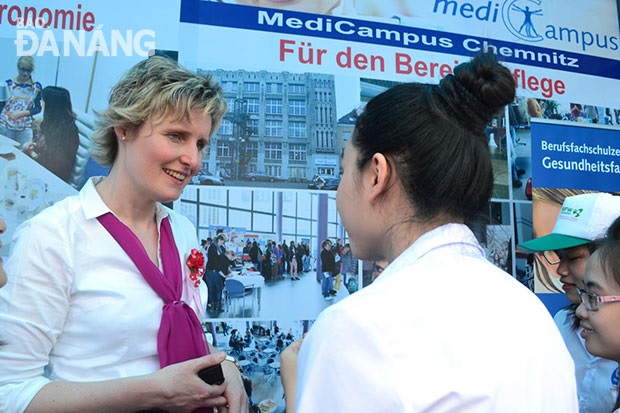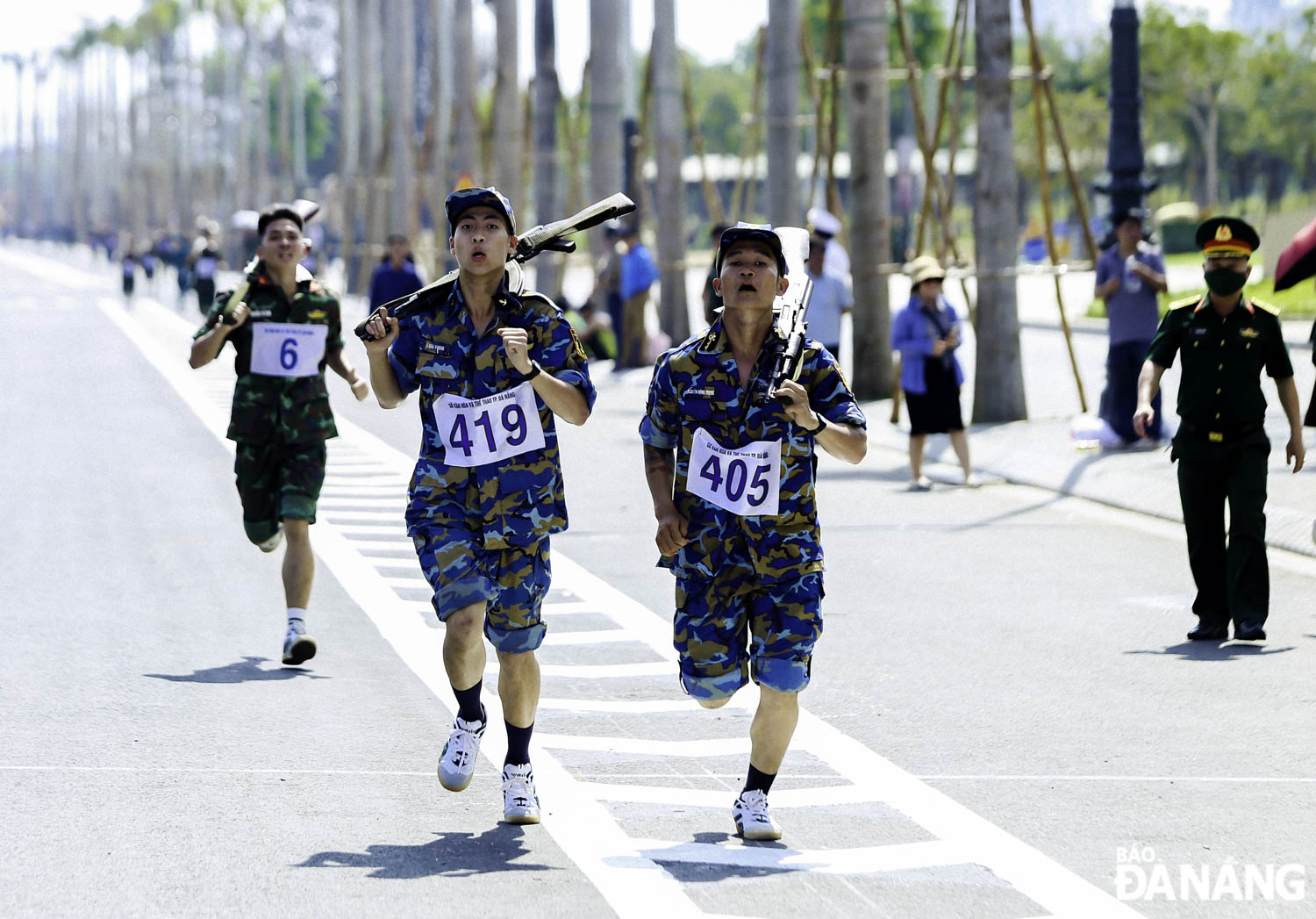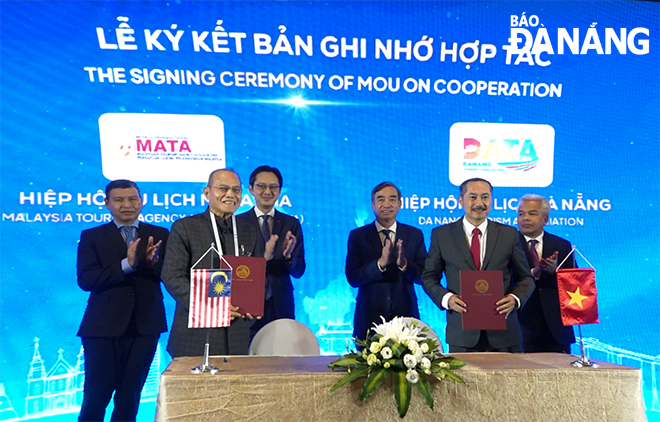International training programmes prove effective
Over recent years, many universities and junior colleges in Da Nang have promoted their international training programmes in order provide their graduates with comprehensive qualifications in the current context of deeper global economic integration, especially since the ASEAN Economic Community (AEC) was established in December last year.
 |
| A local student talking with a foreign businesswoman at a recent job fair |
The city’s University of Education, for example, has given top priority to increasing the number of international cooperative programmes with educational establishments around the world.
Most notably, many experienced experts from the USA, the UK, Canada, Japan, Portugal, and Belgium have been invited to the university to conduct research activities there, and to deliver academic presentations for lecturers and students in such faculties as Biological and Environmental Science, Chemistry, Physics, Mathematics, Computer Science, and Educational Psychology.
The university is now cooperating with Denmark’s Aarhus University to offer the Summer School programme for students from its Faculty of Biological and Environmental Science. Under another bilateral cooperative programme, the Catholic University of America covers half of the tuition fees for Da Nang students who want to study there for Bachelor’s or Master’s degrees.
In a similar vein, the city’s Junior College of Technology has cooperated with Japan’s ME Inc to offer 4 elevator engineering courses since 2012. About 100 trainees have so far graduated from the courses, the majority of whom are now working either in Japan or at Japanese-invested Fujitec and Mitsubishi Motors, both based in Viet Nam.
Under another international cooperative programme, 20 students from the college have been sent to Thailand’s Chaopraya University (CPU) and the KTIS Group for internships, and the junior college has also admitted 5 interns from CPU.
The Head of the Department of Personnel and Administration in the city’s University of Education, Associate Professor Vo Van Minh, noted that special heed is now being paid to inviting native English-speaking volunteers to teach English to the university’s students. This will help to enhance their proficiency in this foreign language as well as promote their study and research skills in the current context of the deeper ASEAN labour market integration.
Mr Phan Quy Tra from the Junior College of Technology remarked that students from local tertiary establishments benefit from the international training programmes because they can access more job opportunities after graduation.
Thanks to such programmes, the universities and junior colleges also have a chance to apply advanced training methods, whilst domestic and foreign businesses find it easier to recruit qualified employees suitable for their production and trading activities.




